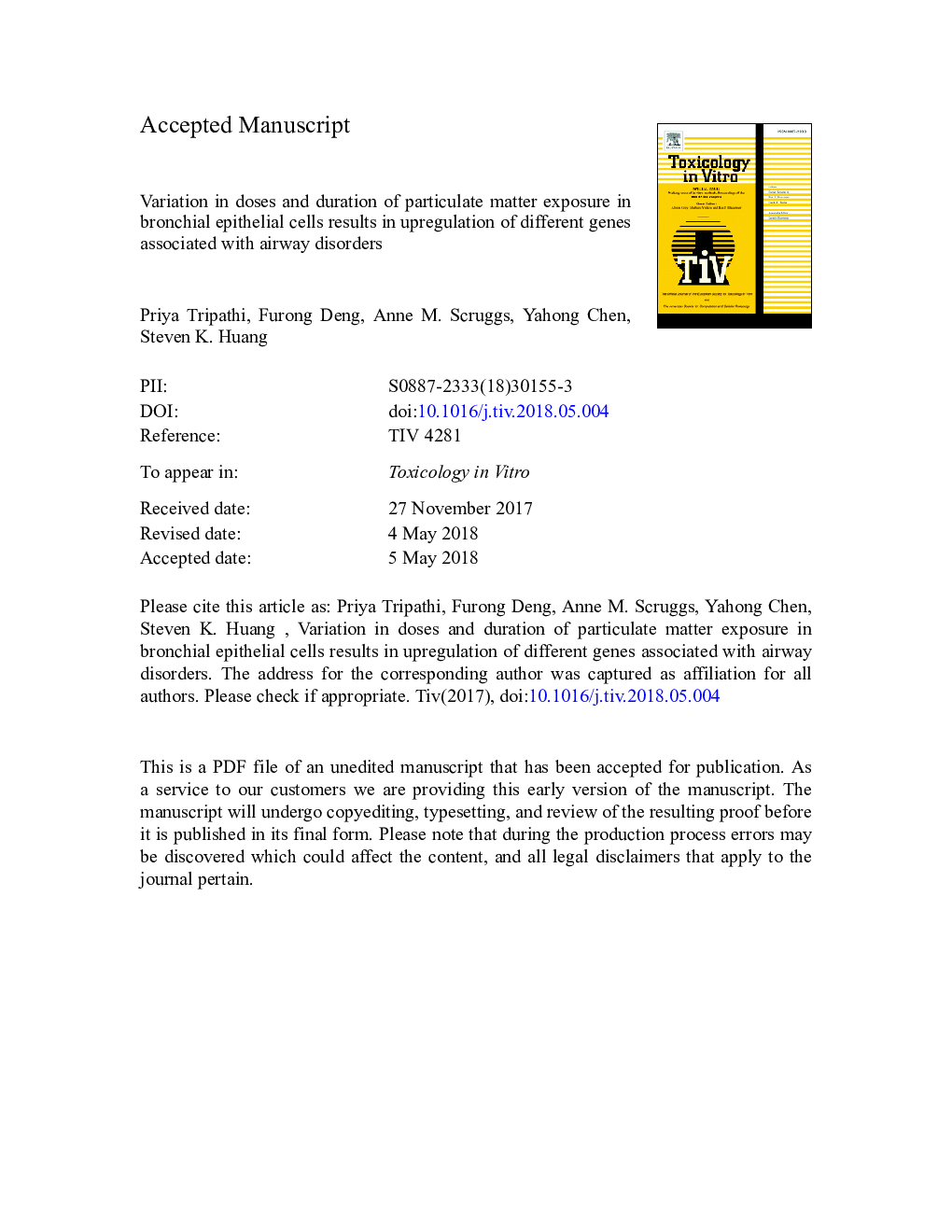| کد مقاله | کد نشریه | سال انتشار | مقاله انگلیسی | نسخه تمام متن |
|---|---|---|---|---|
| 8553747 | 1562694 | 2018 | 39 صفحه PDF | دانلود رایگان |
عنوان انگلیسی مقاله ISI
Variation in doses and duration of particulate matter exposure in bronchial epithelial cells results in upregulation of different genes associated with airway disorders
ترجمه فارسی عنوان
تغییرات در دوزها و مدت زمان قرارگیری ذرات در سلولهای اپیتلیال برونش موجب ارتقاء ژنهای مختلف مرتبط با اختلالات راه هوایی می شود
دانلود مقاله + سفارش ترجمه
دانلود مقاله ISI انگلیسی
رایگان برای ایرانیان
کلمات کلیدی
موضوعات مرتبط
علوم زیستی و بیوفناوری
علوم محیط زیست
بهداشت، سم شناسی و جهش زایی
چکیده انگلیسی
Exposure to particulate matterâ¯<â¯2.5â¯Î¼m (PM2.5) is associated with a variety of airway diseases. Although studies have demonstrated that high doses of PM2.5 cause cytotoxicity and changes to gene expression in bronchial epithelial cells, the effect of lower doses and repeated exposure to PM2.5 are less well studied. Here, we treated BEAS-2B cells with varying doses of PM2.5 for 1-7â¯days and examined the expression of a variety of genes implicated in airway disorders. At high doses, PM2.5 increased the expression of IL6, TNF, TSLP, CSF2, PTGS2, IL4R, and SPINK5. Other genes such as ADAM33, ORMDL3, DPP10 and CYP1A1, however, were increased by PM2.5 at much lower doses (â¤1â¯Î¼g/cm2). Repeated exposure to PM2.5 at 1 or 5â¯Î¼g/cm2 every day for 7â¯days increased the sensitivity and magnitude of change for all of the aforementioned genes. Genes such as IL13 and TGFB1, increased only when cells were repeatedly exposed to PM2.5. Treatment with an antioxidant, or inhibitors to aryl hydrocarbon receptor or NF-κB attenuated the effect of PM2.5. These data demonstrate that PM2.5 exerts pleiotropic actions that differ by dose and duration that affect a variety of genes important to the development of airway disease.
ناشر
Database: Elsevier - ScienceDirect (ساینس دایرکت)
Journal: Toxicology in Vitro - Volume 51, September 2018, Pages 95-105
Journal: Toxicology in Vitro - Volume 51, September 2018, Pages 95-105
نویسندگان
Priya Tripathi, Furong Deng, Anne M. Scruggs, Yahong Chen, Steven K. Huang,
